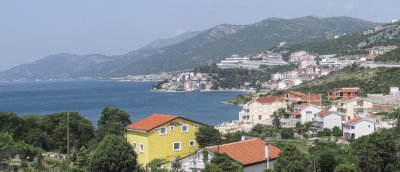Symposium “Science and Society”

Location: Neum, Bosnia and Herzegovina
Tentative date: Fall 2017 (exact dates depend on the availability of potential venues)
Duration: 5 days plus arrival and departure day
Bosnia and Herzegovina is a multicultural and multiethnic country. In countries, which have a well-developed government and efficient administration, this fact would have a significant positive impact to the development of civil society. Unfortunately, society in Bosnia and Herzegovina is deeply ethnically divided. Technological and scientific developments are at the bottom of priority lists of political elites in the country. Currently, there are many attempts by the NGO sector in order to normalize the situation, but all these attempts, no matter how well intended, take place partially, and perhaps more importantly, they are not in any way synchronized. For these reasons, it is important to support the academic community in its efforts to improve any segments of global society in Bosnia and Herzegovina.
The Symposium “Science and Society” will create a collaborative platform and bring together young researchers and established scientists from the humanities and social sciences (philosophy, law, economics) and natural sciences (physics, mathematics, biology, chemistry). Given the historical background of the region, the group of participants and keynote speakers/lecturers is carefully selected and represents the different ethnical groups as well as the different countries and regions. This multi- disciplinary group will discuss and develop new projects and will identify new forms of cooperation across the western Balkans region and with Germany.
The central goals is to actively involve students, young scientists and established academics in a broad discussion on the issue of the failure of the formal systems of civil society to foster sustained socioeconomic change in the Western Balkans and how in particular, technological and scientific development can bring about this change.
The program is intertwined with presentations from the local and international groups to stimulate the discussion on how the scientists from the target countries can formulate joint activities that have the potential to be seeds for further common projects.
Within the Symposium the keynote speakers and contributed talks will specifically address the following questions reflected, however, within their own field:
- What is the impact of science and technology on the development of civil society?
- What measures should be taken in order for the scientific community to have a much more active role in the development of civil society?
- What is the other side of the coin in the development of science and technology?
- What, if any, constraints should be imposed on the progress of science and technology?
- What are the legal, moral and ethical aspects of these potential constraints? The discussion process and the program is monitored and supported by a
Communications Trainer to maximize the effectiveness and goal orientation.
Finally, a green paper with recommendations for policy makers and science administrators will be created to collect the results of the Symposium.
The Symposium is specifically designed to achieve a fruitful cooperation between students and young researchers from all the Western Balkans. Students and young researchers will be invited to participate actively in the project in order to identify current problems within civil society and to present their conclusions of how to overcome them.
The topics of the workshop (Science and Society, Politics and Science, Cooperation in small scale projects, Regional Cooperation, International Cooperation) will be introduced in a keynote speech in the morning with ample time for discussions. Various additional perspectives will then be given in up to three focus talks just before lunch. After a common lunch break the participants will reconvene to a dialogue forum and prepare the world café sessions in the late afternoon in an open format. Each day ends with a world café session, where the participants gather ideas and formulate concrete action plans on how to proceed with the cooperation. The sessions will be organized, moderated and wrapped up by a professional communications trainer.
Program
Tentative speakers from the western Balkans region are:
The German participants/speakers are:
